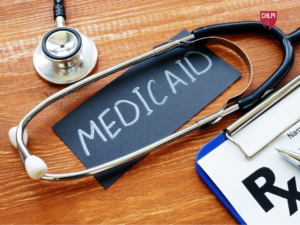Medicaid access, both pre- and post-release, is a promising path to ensuring that reentry is a genuine, lasting return to freedom.
By Johnathon Card & Spencer Andrews. Originally published in Inquest on February 18, 2025.
In the days and weeks following release from a carceral facility, meaningful access to health care can be the difference between life and death. People who have been recently released from a jail or prison are at drastically greater risk of death by suicide, overdose, and cardiovascular disease. More broadly, people who have been impacted by the criminal legal system are more likely to experience worse health outcomes as compared to the general public. In addition to the myriad negative health impacts of the carceral system, reincarceration contributes to meaningful gaps in health insurance coverage.
These stark health disparities make clear the need for policy changes that improve access to quality health care and lead to better health outcomes for people impacted by mass incarceration. Some of them are already taking root.
As of January 2025, all states will be required to implement certain screening, diagnostic, and targeted case management services for people in youth correctional settings. Additionally, before the presidential transition, the Health Resources and Services Administration, which oversees health services for people who are geographically isolated and economically or medically vulnerable, announced funding and new policy guidance encouraging health centers to provide prerelease services in prisons and jails. Initiatives such as these are designed to alleviate the multiple obstacles that can impact a person’s health during reentry; they remove administrative barriers to health-care services and coverage and encourage community-based services to engage with correctional settings in the days leading up to release.
Read the full article.


Food Law & Policy, Commentary
Policy to Reduce Methane Emissions and Feed More People
April 3, 2025